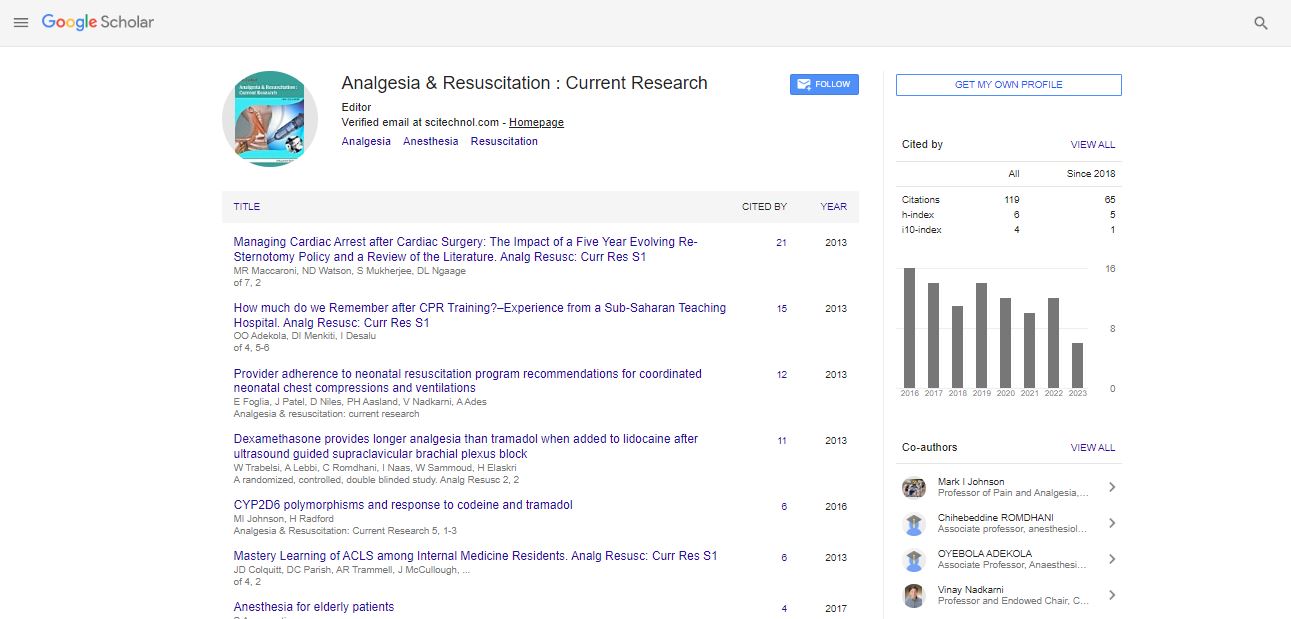The role of acupuncture in the treatment of migraine
Panagiotis Zogopoulos, Aggelos Leventis, Panagiotis Kokkalis, Ioannis Ydraios and Georgios Tsanis
General Hospital of Nikaia-Piraeus “Agios Panteleimon”, Greece
: Analg Resusc: Curr Res
Abstract
Migraine is a complex and multifactorial painful condition in which patients suffer from recurrent episodes of disabling headache, often leading to severe psychological distress. It affects approximately 18% of women and 5% of men in the United States and annual healthcare costs associated with school and work absence due to migraine attacks are several billion dollars. Although there are various treament modalities for migraine, they are not always effective and none of them is curative. World Health Organization lists migraine as one of the several conditions treated effectively by acupuncture and numerous researches have proved that acupuncture may be an effective and safe adjuvant or alternative migraine treatment. It has been commonly used both for preventing migraine attacks and relieving pain during a migraine. Neuroimaging examinations [such as resting-state functional magnetic resonance imaging (fMRI) on migraine patients have shown that long-term acupuncture treatment can elicit an extensive and remarkable cerebral response, particularly at the regions involved in pain processing. It may positively influence cerebral autoregulation during the interictal phase (by lowering the levels of serum NO). Acupuncture has been found to significantly decrease migraine frequency and pain intensity, for a period extending even more than 12 weeks after the last acupuncture session. Acupuncture is a better treatment option than the conventional drug therapy in not only relieving the pain of migraine but also in improving the psychological profile of patients. It is safe, long lasting, costeffective and has cumulative effects. Therefore its use should be encouraged as an alternative/adjunct treatment for migraine.
Biography
Panagiotis Zogopoulos is a resident of Neurosurgery at the General Hospital of Nikaia-Piraeus “Agios Panteleimon”, Athens, Greece. He has received a 6-month advanced clinical training (clinical fellow) at the Neurosurgery Department of Osaka University Hospital in Japan. Several of his papers have been published in reputed peer-review journals and he has presented various researches in international conferences.
 Spanish
Spanish  Chinese
Chinese  Russian
Russian  German
German  French
French  Japanese
Japanese  Portuguese
Portuguese  Hindi
Hindi 
